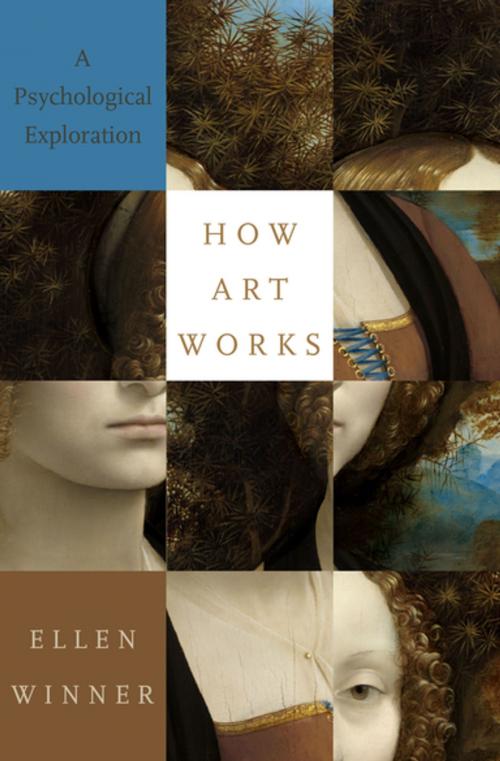How Art Works
A Psychological Exploration
Nonfiction, Religion & Spirituality, Philosophy, Aesthetics, Art & Architecture, General Art, Criticism, Health & Well Being, Psychology, Cognitive Psychology| Author: | Ellen Winner | ISBN: | 9780190863371 |
| Publisher: | Oxford University Press | Publication: | October 4, 2018 |
| Imprint: | Oxford University Press | Language: | English |
| Author: | Ellen Winner |
| ISBN: | 9780190863371 |
| Publisher: | Oxford University Press |
| Publication: | October 4, 2018 |
| Imprint: | Oxford University Press |
| Language: | English |
There is no end of talk and of wondering about 'art' and 'the arts.' This book examines a number of questions about the arts (broadly defined to include all of the arts). Some of these questions come from philosophy. Examples include: · What makes something art? · Can anything be art? · Do we experience "real" emotions from the arts? · Why do we seek out and even cherish sorrow and fear from art when we go out of our way to avoid these very emotions in real life? · How do we decide what is good art? Do aesthetic judgments have any objective truth value? · Why do we devalue fakes even if we -- indeed, even the experts--- can't tell them apart from originals? · Does fiction enhance our empathy and understanding of others? Is art-making therapeutic? Others are "common sense" questions that laypersons wonder about. Examples include: · Does learning to play music raise a child's IQ? · Is modern art something my kid could do? · Is talent a matter of nature or nurture? This book examines puzzles about the arts wherever their provenance - as long as there is empirical research using the methods of social science (interviews, experimentation, data collection, statistical analysis) that can shed light on these questions. The examined research reveals how ordinary people think about these questions, and why they think the way they do - an inquiry referred to as intuitive aesthetics. The book shows how psychological research on the arts has shed light on and often offered surprising answers to such questions.
There is no end of talk and of wondering about 'art' and 'the arts.' This book examines a number of questions about the arts (broadly defined to include all of the arts). Some of these questions come from philosophy. Examples include: · What makes something art? · Can anything be art? · Do we experience "real" emotions from the arts? · Why do we seek out and even cherish sorrow and fear from art when we go out of our way to avoid these very emotions in real life? · How do we decide what is good art? Do aesthetic judgments have any objective truth value? · Why do we devalue fakes even if we -- indeed, even the experts--- can't tell them apart from originals? · Does fiction enhance our empathy and understanding of others? Is art-making therapeutic? Others are "common sense" questions that laypersons wonder about. Examples include: · Does learning to play music raise a child's IQ? · Is modern art something my kid could do? · Is talent a matter of nature or nurture? This book examines puzzles about the arts wherever their provenance - as long as there is empirical research using the methods of social science (interviews, experimentation, data collection, statistical analysis) that can shed light on these questions. The examined research reveals how ordinary people think about these questions, and why they think the way they do - an inquiry referred to as intuitive aesthetics. The book shows how psychological research on the arts has shed light on and often offered surprising answers to such questions.















